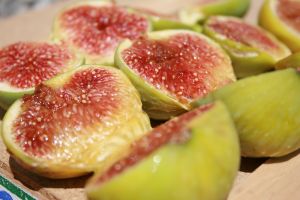-
About
- Our Work
- Get Involved
- Stay Updated
Irans Organic Agriculture Potential: An opportunity for the Middle East countries
 Farmland area in Iran is 11-13 million ha in which most of it can be classified as traditional farming systems which smallholder farmers are involved in for subsistence agriculture. Since many farmers in their small farms and gardens never use agrochemicals and use sustainable approaches for crop production during land preparation, crop nutrition, soil fertility as well as pest, disease and weed management, their agroecosystems are potentially organic or can be easily converted to organic. These farmers grow wide range of crops (i.e cereals, root crops and medicinal plants), fruits (nuts, apple, pomegranate, citrus, fig and grapes) and vegetables that all would be able to expand Middle East organic food market. There are, however, some obstacles in certifying these products as organic.
Farmland area in Iran is 11-13 million ha in which most of it can be classified as traditional farming systems which smallholder farmers are involved in for subsistence agriculture. Since many farmers in their small farms and gardens never use agrochemicals and use sustainable approaches for crop production during land preparation, crop nutrition, soil fertility as well as pest, disease and weed management, their agroecosystems are potentially organic or can be easily converted to organic. These farmers grow wide range of crops (i.e cereals, root crops and medicinal plants), fruits (nuts, apple, pomegranate, citrus, fig and grapes) and vegetables that all would be able to expand Middle East organic food market. There are, however, some obstacles in certifying these products as organic.In summary, these are Irans chief privileges in organic agriculture for Middle East:
- As far as Im concerned many farmers in Iran have not utilized chemical fertilizers as well as pesticides. In regard to given reason, we do claim that uncontaminated land is still accessible to farmers in Iran.
- Iran is well placed to develop organic agriculture, due to the great diversity of growing conditions. A return to more sustainable production systems in a country like Iran with a long history of ecological agriculture could be one effective method to protect the fragile local environments. Trends are emerging for production of organic herbs, spices, dried fruits and nuts for export. To comply with this demand, international regulations must be considered and proper national standards for organic agriculture need to be implemented. On the other hand most of Middle East countries have an arid and hot climate, containing limited containing restricted water resources for irrigation to support agriculture in limited areas.
- Numbers of experts who are sufficiently knowledgeable in the field of agriculture in Iran are high. According to collected data most of experts are graduated. It is one of most important factors in the development of organic agriculture through the country.
Iran has highly developed transport systems. By comparison with other countries (except of Russia and China), Iran is a strategic country in alternative transport connection from Central Asia. Iranian ports are located in close proximity of the sea points to export Central Asian products. On the contrary Iran would find outlet up north of its border as much lucrative which is verifiable by means of taking a quick-look at local markets, which are overwhelmed of Iranian products. The organic industry with government's support needs to develop and get started producing organic yields in Iran from raw materials which are produced in Iran or imported from Central Asia, Pakistan and India. Approximately all of Iran organic production is destined for export markets, primarily in Middle East.
Picture: Traditional Food Apulia, (c) Vincenzo ALBA - stock.xchng
About the author
Related Posts
Comments
No comments made yet. Be the first to submit a commentBy accepting you will be accessing a service provided by a third-party external to https://www.ypard.net/
Get in touch
Email: [email protected]
YPARD Global Coordination UnitHosted by AGRIDEA and the Czech University of Life Sciences Prague
Lausanne, Switzerland and Prague, Czech Republic - Our Work

 Farmland area in Iran is 11-13 million ha in which most of it can be classified as traditional farming systems which smallholder farmers are involved in for subsistence agriculture. Since many farmers in their small farms and gardens never use agrochemicals and use sustainable approaches for crop production during land preparation, crop nutrition, soil fertility as well as pest, disease and weed management, their agroecosystems are potentially organic or can be easily converted to organic. These farmers grow wide range of crops (i.e cereals, root crops and medicinal plants), fruits (nuts, apple, pomegranate, citrus, fig and grapes) and vegetables that all would be able to expand Middle East organic food market. There are, however, some obstacles in certifying these products as organic.
Farmland area in Iran is 11-13 million ha in which most of it can be classified as traditional farming systems which smallholder farmers are involved in for subsistence agriculture. Since many farmers in their small farms and gardens never use agrochemicals and use sustainable approaches for crop production during land preparation, crop nutrition, soil fertility as well as pest, disease and weed management, their agroecosystems are potentially organic or can be easily converted to organic. These farmers grow wide range of crops (i.e cereals, root crops and medicinal plants), fruits (nuts, apple, pomegranate, citrus, fig and grapes) and vegetables that all would be able to expand Middle East organic food market. There are, however, some obstacles in certifying these products as organic.